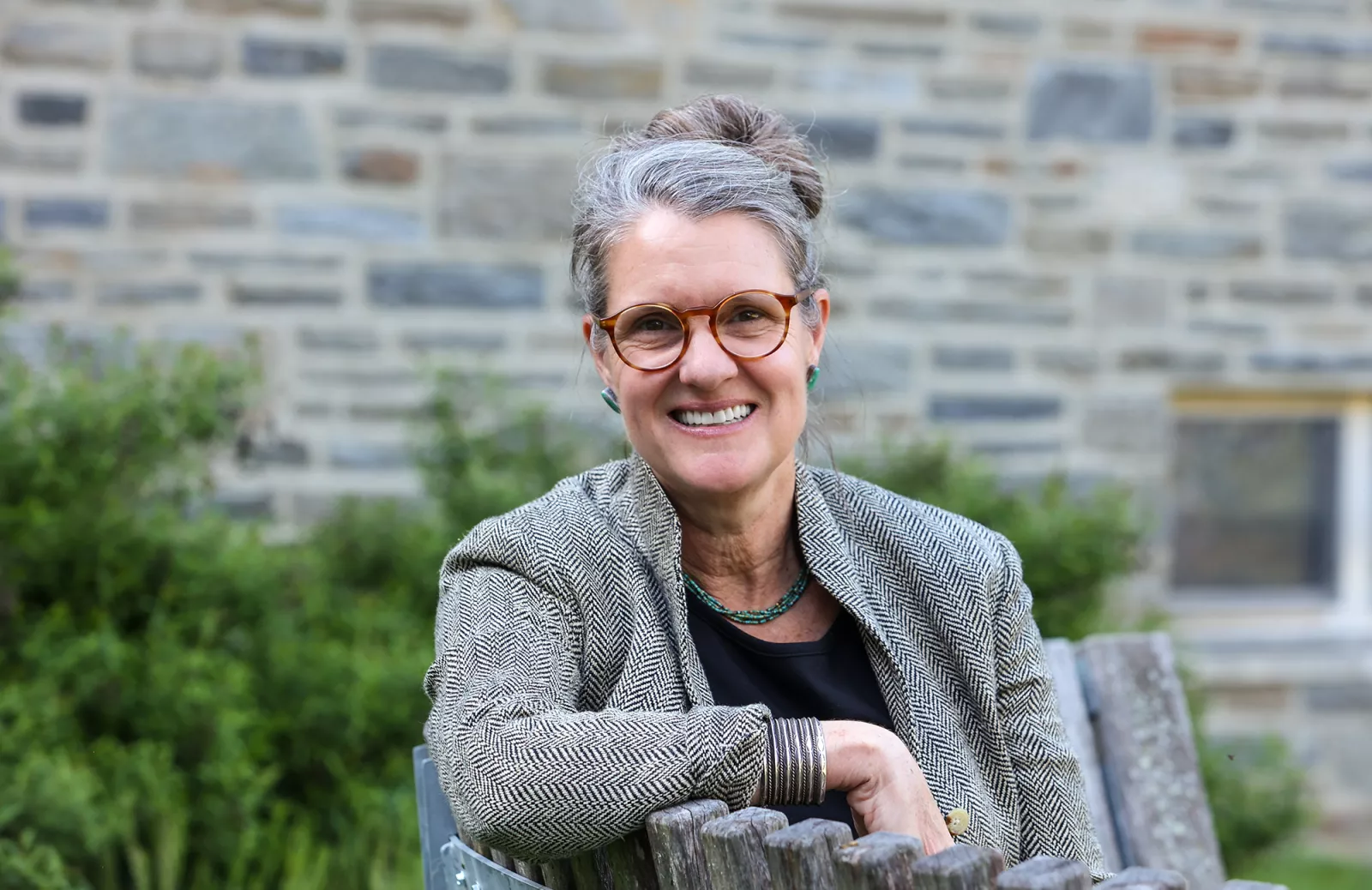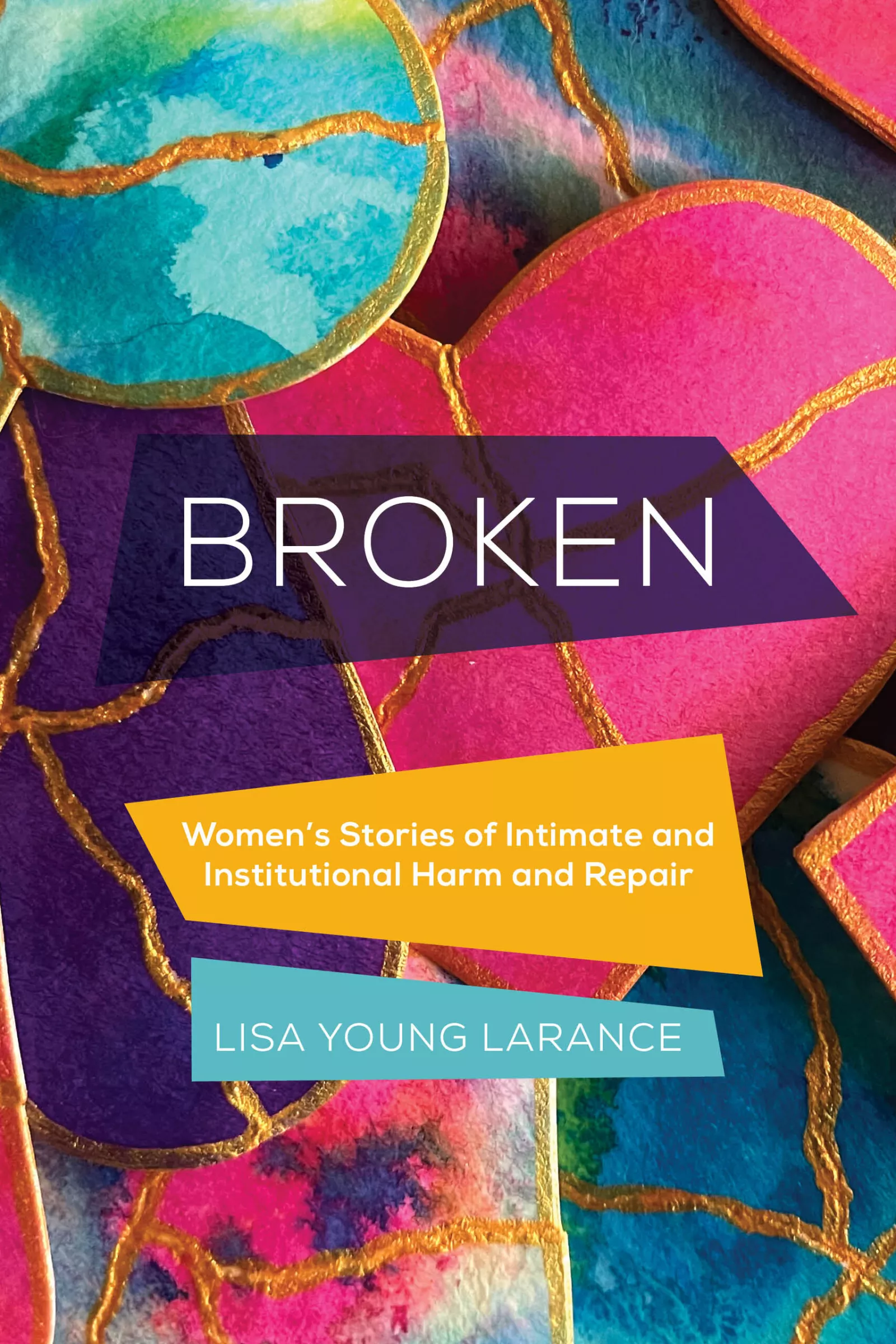
Assistant Professor Lisa Young Larance’s groundbreaking work challenges conventional labels and fosters healing through trauma-informed care and empathy.
Oftentimes, society operates in terms of binaries: good and bad, victim and offender. Bryn Mawr Assistant Professor and Social Work Practitioner Lisa Young Larance, Ph.D., M.S.W., L.C.S.W., L.M.S.W has dedicated her life to looking outside of the binary, serving the needs of people who have both survived and caused harm in their relationships. Young Larance created some of the first programming, which has been adopted globally, to address the needs of women in the legal system who used force or were accused of using force against their partners.
Rather than describing themselves as victims or offenders, Young Larance finds that the women in her work describe themselves, their actions, experiences, and histories in terms of being or feeling broken— but also, in some cases, having broken others.
In her book Broken: Women’s Stories of Intimate and Institutional Harm and Repair, Young Larance takes a trauma-informed approach, deeply exploring the experiences of 33 women she followed for three years. Through extensive qualitative research, she examines how societal systems—such as probation, child protection services, and anti-violence interventions—affected their lives. The book also highlights the healing and resilience that emerged through the connections these women formed and reflects on their lives many years after the intimate and institutional harm. Young Larance calls on practitioners and researchers to adopt a holistic, humanized perspective, regardless of how systems may categorize individuals in a binary.
Through writing this book, Young Larance has given a voice to those who are often overlooked, especially within community-based systems that tend to label and define individuals by their worst moments. Young Larance’s subjects have described their experience participating in this project as a “relief” in that they could finally tell their story.
Young Larance gifted the book to women who lent their experiences to her research. She describes discussing the book with them as one the most satisfying moment of her professional life thus far.
“We all have the capacity to do things that we never thought we would do,” Young Larance says. “We all can harm someone at some point in our lives – and many of us have. The difference often lies in the systems, interventions, and responses that follow particularly for diverse marginalized people. This project shows the value of being an empathetic listener and showing up for the people in our lives without judgment. I hope that everyone, from my students to probation officers, police officers, and social workers, can walk away from my book with that message.”
She added her thanks for the support she received from Bryn Mawr colleagues during this work. “I was an undergrad at Smith, so my heart has always been with the Seven Sisters,” she says. “I am grateful to Provost Timothy Harte and Dean of the Graduate School of Social Work and Social Research Janet Shapiro for embracing my deeply qualitative methods and focus on the book.”
Young Larance will teach an elective on domestic violence, a course she created and taught last spring, in the Spring 2025 semester.
